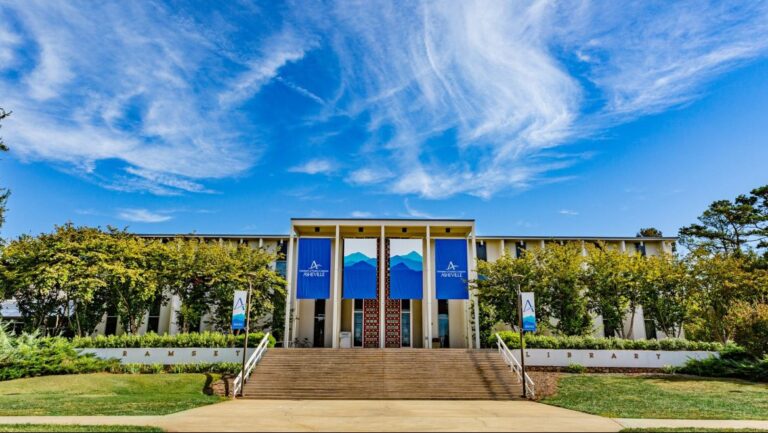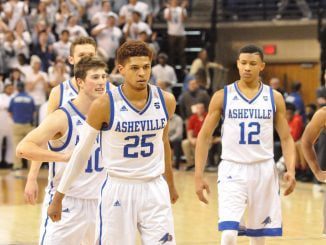
RALEIGH — Students participating in a recent active shooter training on the UNC Asheville campus were told to “sacrifice” themselves by a university official leading the training.
About 50 student employees of UNCA’s Highsmith Student Union were involved in the Sept. 20 training drill, one of which spoke to North State Journal on the condition their identity be kept anonymous. This article will refer to them as Jordan.
The student employees had received an email notice of a “mandatory training” event that would last two hours on Sept. 9. The Alert, Lockdown, Inform, Counter, Evacuate (ALICE) training that was employed has been described as “interactive,” and the Sept. 9 session was apparently headed up by UNCA Director of Emergency Management David Weldon. Also in attendance were Highsmith Student Union Director Jessica Inman and Associate Director Silke Crombie.
At the onset of the training, Weldon told students that if they were to leave, they would tell another staff member present the reason why.
During the first part of the training, footage and images of the shootings that took place at UNC Charlotte before the pandemic and at Florida’s Marjory Stoneman Douglas High School were shown to the participants. That lined up with the expectation the training would be similar to the active shooter training description on the UNCA Police Department’s webpage that includes a video and a theme of “Run. Hide. Fight.”
Jordan also said they had expected something like the “Run. Hide. Fight.” But what the students experienced was something totally different.
During the training, Weldon joked around a number of times and used a fake weapon which he waved at the students at one point, according to Jordan.
Jordan also recalled Weldon held his hand like a gun to one student’s head. That student then went to exit the building, however, Jordan said Weldon told her she needed to stay longer. Following that exchange, Weldon made gun noises by clapping his hands together and told the remaining students to run and hide — and they did, with at least one student injuring themselves while trying to dash away and others experienced panic attacks.
To add to the confusion, the Highsmith Student Union had apparently been left open, resulting in students not taking part in the training being exposed to the participants who were sent “screaming” and “charging towards the guest services desk.”
One participant “busted her knee open” while trying to hide under a desk, and Jordan said that student expressed concern that if she didn’t continue with the training she would lose her job.
“The fact that [Weldon] told us that we should ‘sacrifice ourselves’ like Riley Howell at the UNCC campus … that was what kind of sent everyone off the edge,” Jordan said.
It is unclear whether Weldon’s remark was referring to the students putting themselves out there to train to protect other students or if his remark was a literal reference to giving up one’s life for other students.
North State Journal reached out to Meghan Harte Weyant, UNCA’s vice chancellor for student affairs, but did not receive a response from her. Instead, Crissa Sinkovic, UNCA’s co-interim associate director of communications and marketing, responded with a statement from Weyant.
“The active shooter preparedness training was implemented eight years ago by UNC Asheville’s Emergency Management,” the statement said. “The purpose is to prepare members of the campus community with actionable steps in a worst-case scenario. Concerned students alerted us about an active shooter preparedness training program that took place on Tuesday evening with student employees. The program has been paused while we conduct a comprehensive review of the program’s history and the evening’s event. We take the safety and well-being of our students and campus community very seriously. As a learning community, we look forward to considering ways to support our students and strengthen this program in the future.”
The language in the statement sent to North State Journal is identical to the email Weyant sent to students the day after the training occurred.
Several hours after the training, students involved received an email from Inman, the student union director, that said, in part, “We know that this meeting did not go as intended, and we would like to learn more about what exactly caused the meeting to be derailed the way it was.”
Inman’s email, which conformed Weldon was heading up the school’s emergency management team, said that Weyant had “declined to say whether Weldon is facing disciplinary action.”
Weyant sent an email on Sept. 23 to staff and students announcing UNCA would be conducting a full review of the ALICE training program that will likely be finished by the first week in October.
The same day Weyant announced a review of the training, students gathered for an open forum meeting to discuss the incident.
About a dozen or so students were captured on video of the forum taken by Blue Banner Productions, the YouTube Channel for UNCA’s student newspaper. Inman and Dean of Students Meghan Pugh apparently hosted the forum.
Questions included how this training was scheduled, who was responsible, was it supposed to be mandatory, what went into implementing it, and conflicting information about the training being mandatory while some students were allowed to leave.
Students also wanted to know where Weldon was.
“This is not a space where we wanted to create a dynamic where we were piling on, so that is why David Weldon is not here. We can tell David Weldon how you feel about things,” Pugh said when questioned about why Weldon was absent.
One forum participant said other students who witnessed the training that day had asked what they were doing and what was happening because people were running through the hall. She said someone could have called the police out of panic.
Near the discussion, Pugh said all UNCA employees have gone through active shooter training but that as the school moves forward they will plan to listen to student suggestions as well as reevaluate the current training program.
The ALICE training was addressed one last time, on Sept. 27 when UNCA’s administration hosted a community conversation during which officials reportedly apologized to students for the trauma caused by the training.


